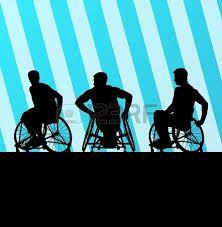People with disabilities are human beings, you know. They need to be kept safe from malice and abuse. When we meet a person with a disability, we all need to remember that he/she is a unique human being with knowledge, interests and talents like the rest of us. They may do things differently from the way we do them but, they are able to achieve the same outcomes. The way we behave, demonstrates our respect for that individual.
Nobody likes to be pitied. In fact, I have learned many of life’s lessons from people who are disabled in one way or another. When I meet a person who has difficulty hearing what I am saying, I realize that many of them learn to lip read, while others use sign language, so it’s a good idea to ask how they prefer to communicate. Or, write a short note.
If I meet a person in a wheelchair, I try to place myself at eye level which makes us both feel more comfortable; equal somehow.
If someone has a cognitive disability, it’s a good idea to try and use short, simple sentences. And, when I know that a person is mentally ill which is one of the hidden illnesses, I have learnt how to be patient; very patient. I always seem to come back to mental illness, don’t I?
I have been told that a person who has been disabled since birth likes to be described as someone with a congenital disability while someone with Cerebral Palsy prefers us to say, ’He/She has cerebral Palsy. The word cripple is offensive so an option when describing that person could be; He/She is a person who needs mobility assistance.
Instead of using the expression a deaf and dumb mute, I prefer to say, a person who is deaf and does not speak. Rather than use the word, deformed, use the expression someone with a physical disability.
Rather than say mongoloid, use the expression Down Syndrome. Retarded is so offensive, so we could use the term, a person with a cognitive disability.
Midget or dwarf ? Rather describe that person as small in stature or a small person while someone with a hunchback is an individual with a spinal curvature.
Emotional disability sounds far easier to hear than emotionally disturbed, doesn’t it? So when talking to someone with a cognitive disability, it’s a good idea to try and use short, simple sentences. And, when I know that a person is mentally ill, which is one of the hidden illnesses, I have learnt how to be patient; very patient. I always seem to come back to mental illness, don’t I? Rather than use the words insane, deranged or deviant, it’s far less offensive to all the people with mental illness out there to describe that man or woman simply as a someone with a mental illness.
A wheelchair bound person or one confined to a wheelchair could be described as someone who uses a wheelchair.
So, what do we call a ‘normal’ person? Maybe a non-disabled, able-bodied individual? But, are any of us ‘normal?’ What is ‘normal?’

